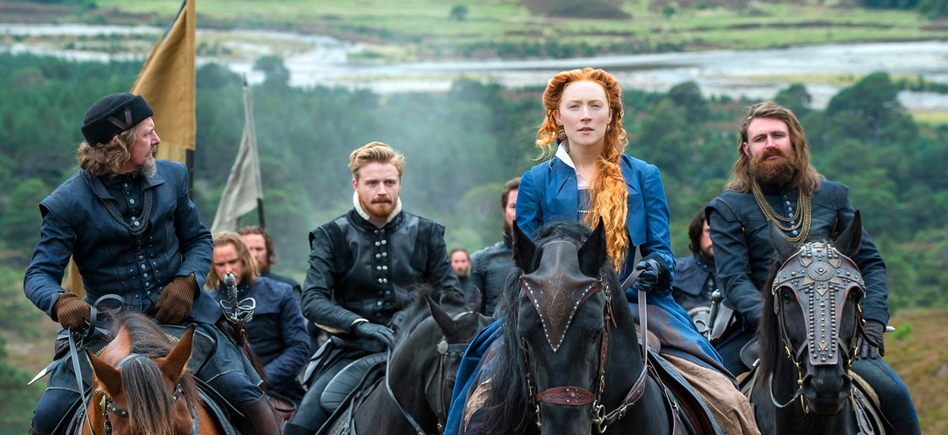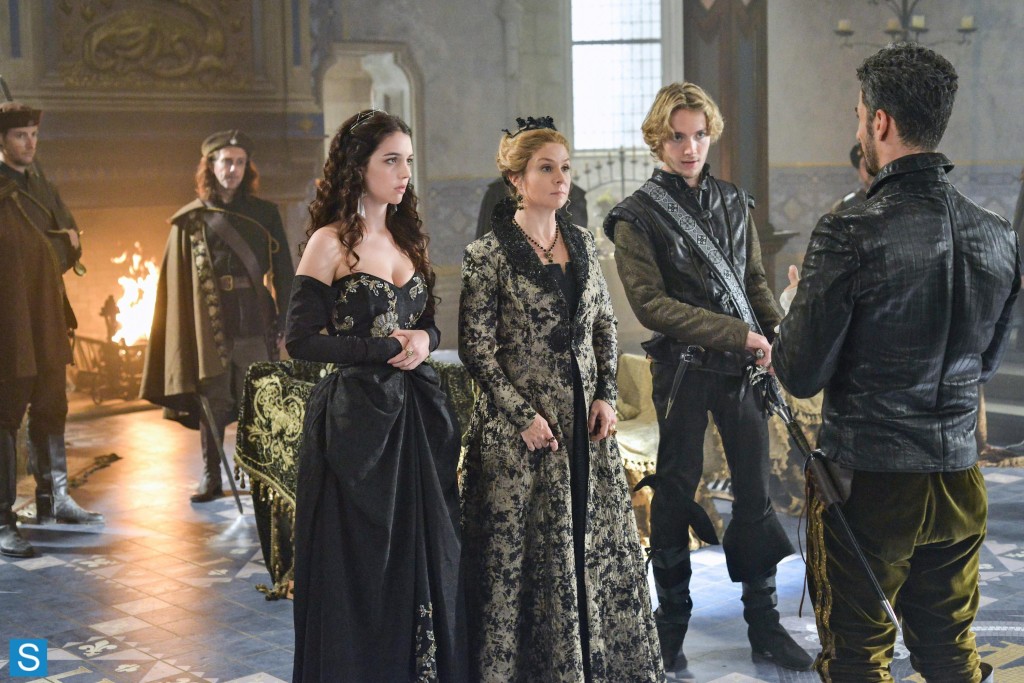A Meandering Narrative Derails the Otherwise Well-Constructed Mary Queen of Scots
Written by Ian Thomas Malone, Posted in Blog, Movie Reviews
Despite the literal definition of the genre, almost all biopics offer a false promise by token of their run times. Few two-hour movies can provide a complete portrait of a historical figure’s life. There just isn’t enough time. The best biopics narrow in on a specific period of a person’s story in order to illuminate a broader point about who they were.
Mary Queen of Scots appears aware of this predicament, with all of its trailers spotlighting the troubled relationship between two cousins seemingly destined for turmoil. Much has been said of the historical inaccuracy at the heart of the film’s narrative, the fact that history refutes the idea that Mary and Elizabeth ever met, but this revision is hardly a factor weighing down the film. Much more problematic is the idea that the narrative never seems fully committed to the course it laid out for itself early on.
Somewhere along the way the film decided that the relationship between Mary and Elizabeth wasn’t enough to sustain the entire narrative, but Mary Queen of Scots never really laid down the framework to dedicate much time to anything else. Some attention is given to Mary’s many troubles in Scotland, with seemingly everyone around her conspiring to end her reign, but these scenes can’t shake the aura of filler. There’s nothing really tying any of the political turmoil together besides the history itself, presenting sequences strung together without any hint of a story.
Perhaps unsurprisingly, the casting is Mary Queen of Scots biggest strength. Saoirse Ronan plays a charming and relatable Mary. Margot Robbie makes the most of the limited scope Elizabeth is given in the narrative. The rest of the cast, including David Tennant, Guy Pearce, Joe Alwyn, and Gemma Chan all put forth compelling performances in supporting roles, but the acting isn’t the problem. The issue is that the film never gives any of its immense talent anything compelling to do.
As effective as Ronan and Robbie are at garnering sympathy for their character’s positions, such efforts are squandered because the film never really builds toward anything. We know their eventual meeting is going to happen by token of the trailers, but everything else feels like they’re simply going through the motions until that moment comes. Despite being ostensibly the two most powerful people in their realms, both characters are never really shown to be anything more than helpless. You can feel for them, but that’s about all that’s ever asked of the audience. There’s nothing here for anyone to actually root for.
Mary Queen of Scots is a film comprised of beautiful pieces with absolutely zero substance at the center. The costumes are gorgeous and the performances are excellent, but these elements cannot indefinitely sustain the absence of narrative. There’s a lot to appreciate in the film’s diverse casting, with nods to acceptance of homosexuality and gender fluidity, which effectively dispels the notion that inclusion is a distraction in period dramas. Trouble is, the film seems entirely composed of diversion used to substitute for the notion that it actually has a story.
The past few years have offered plenty of reasons to dispel with the occasional public perception that period dramas are dry and boring. Mary Queen of Scots unfortunately plays this trope up quite well. The sum of its many admirable parts don’t add up to an interesting movie, only two hours of watching talented actors try to pull a narrative out of thin air.












